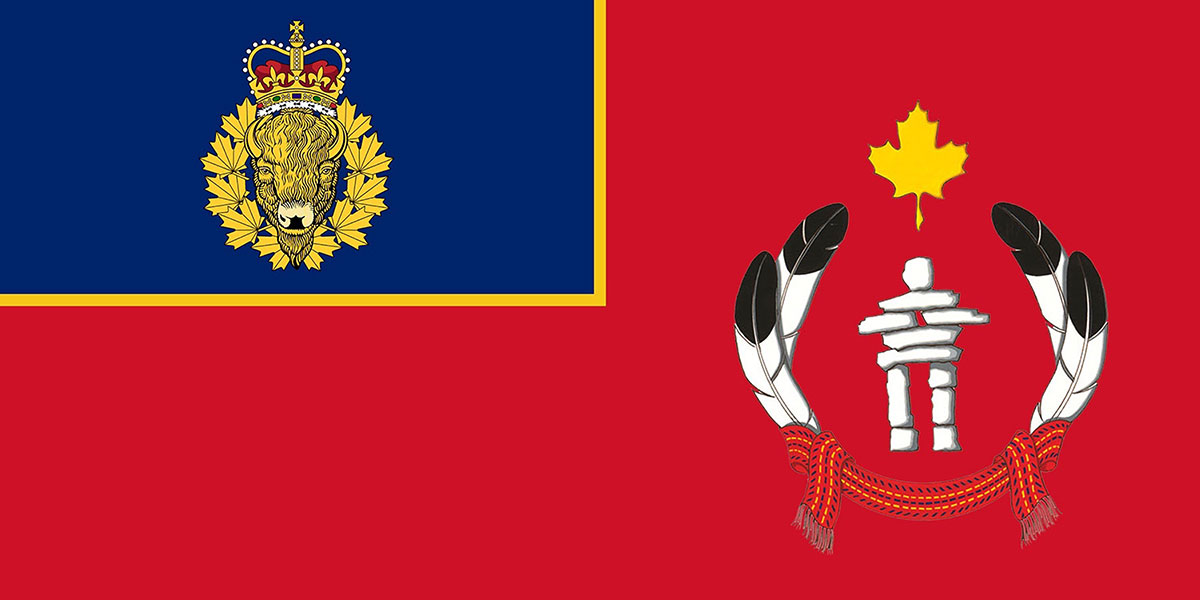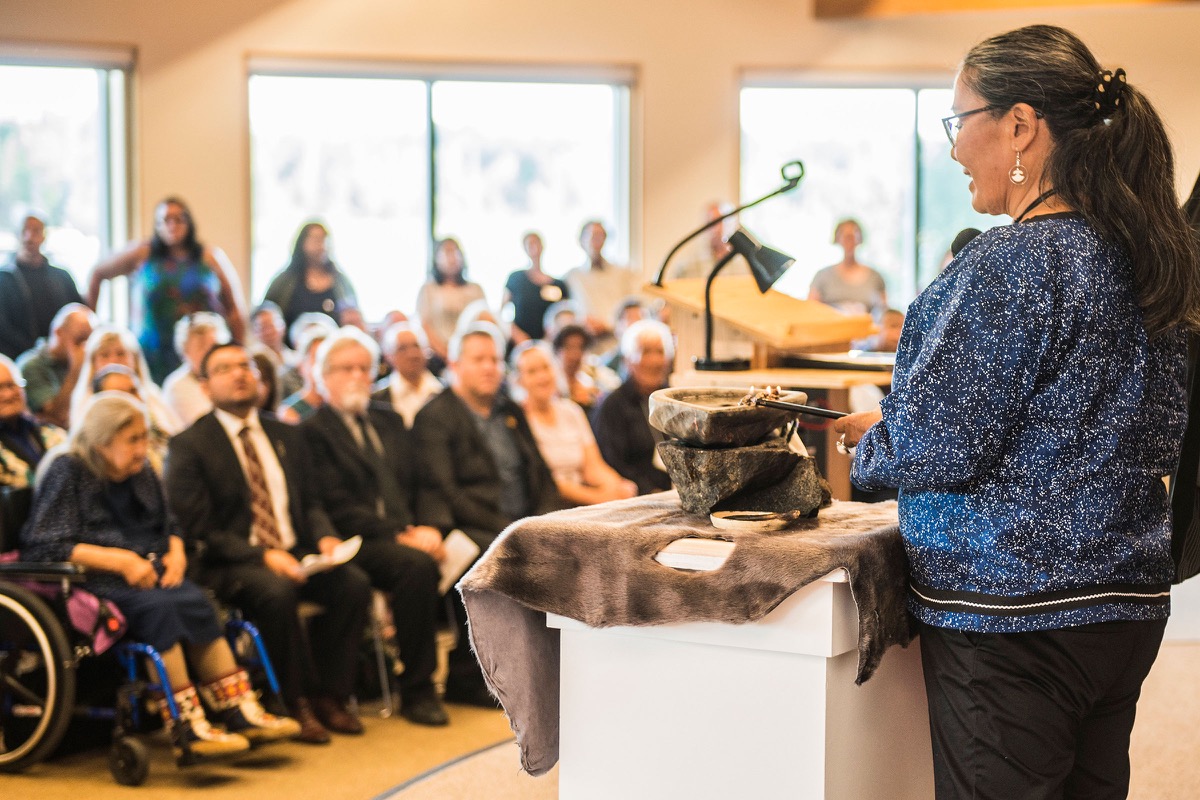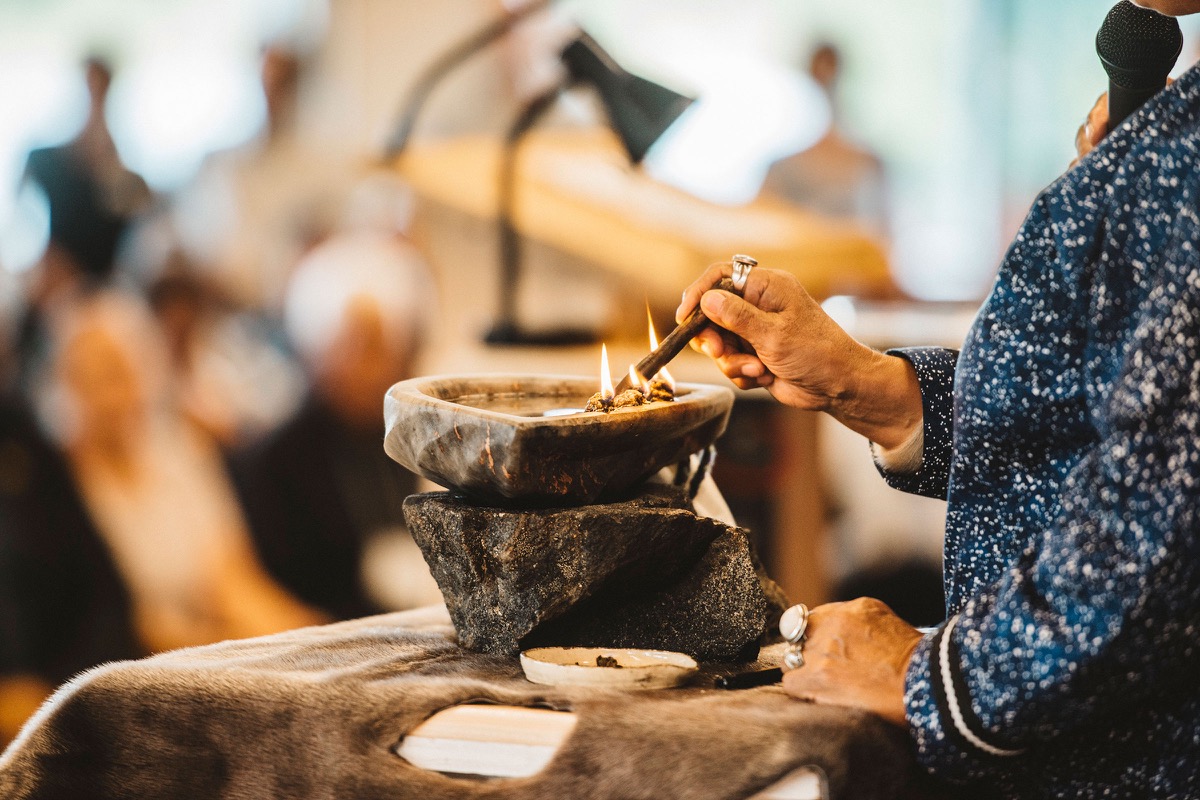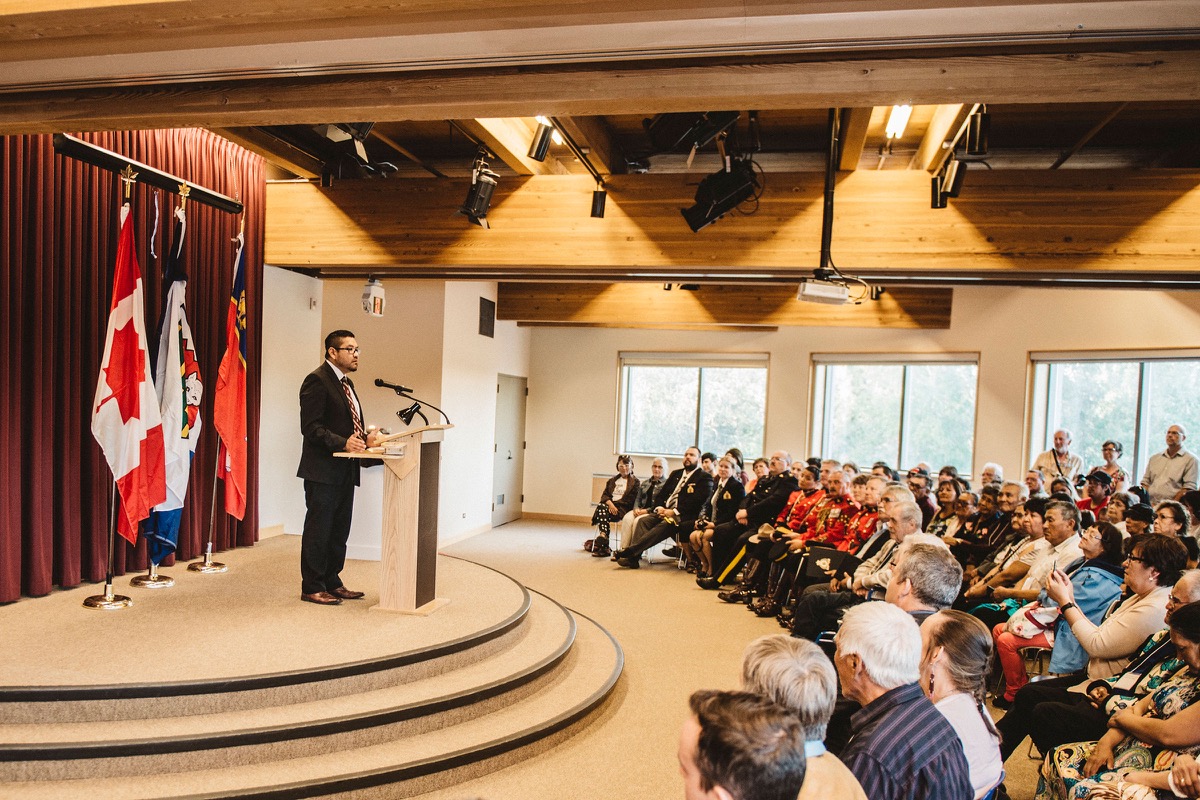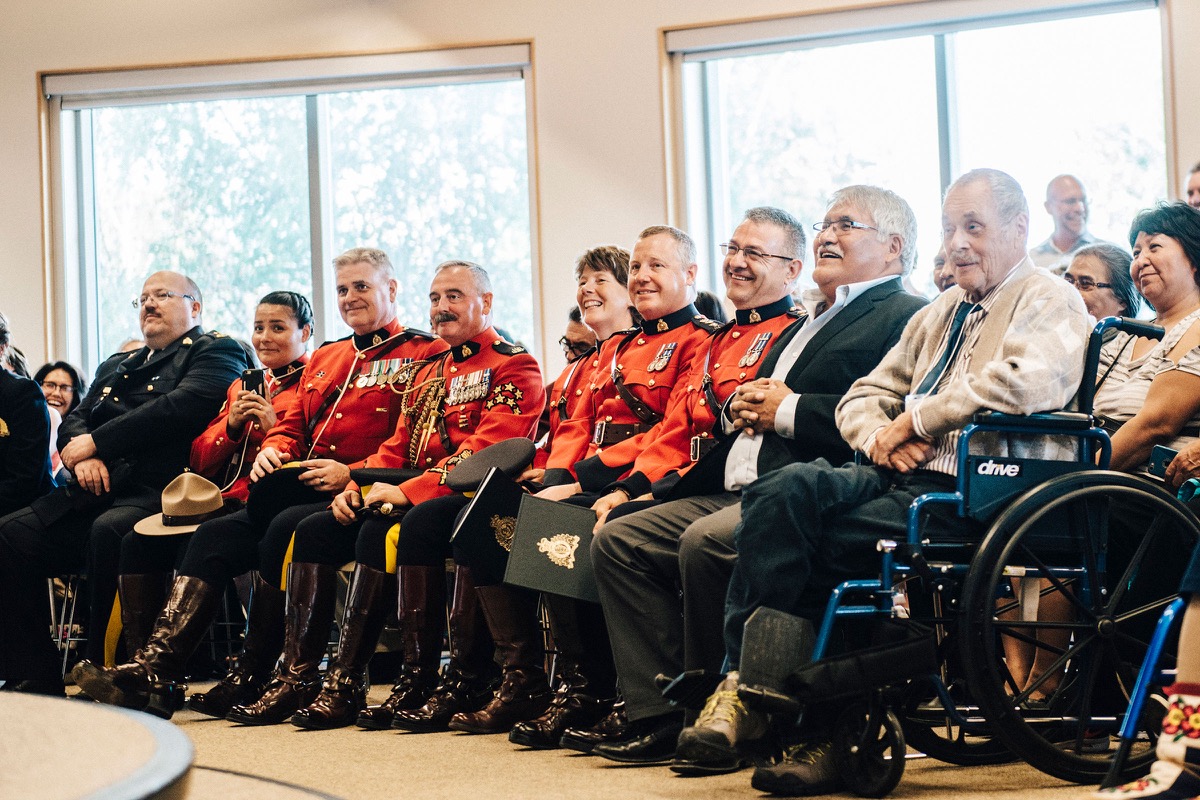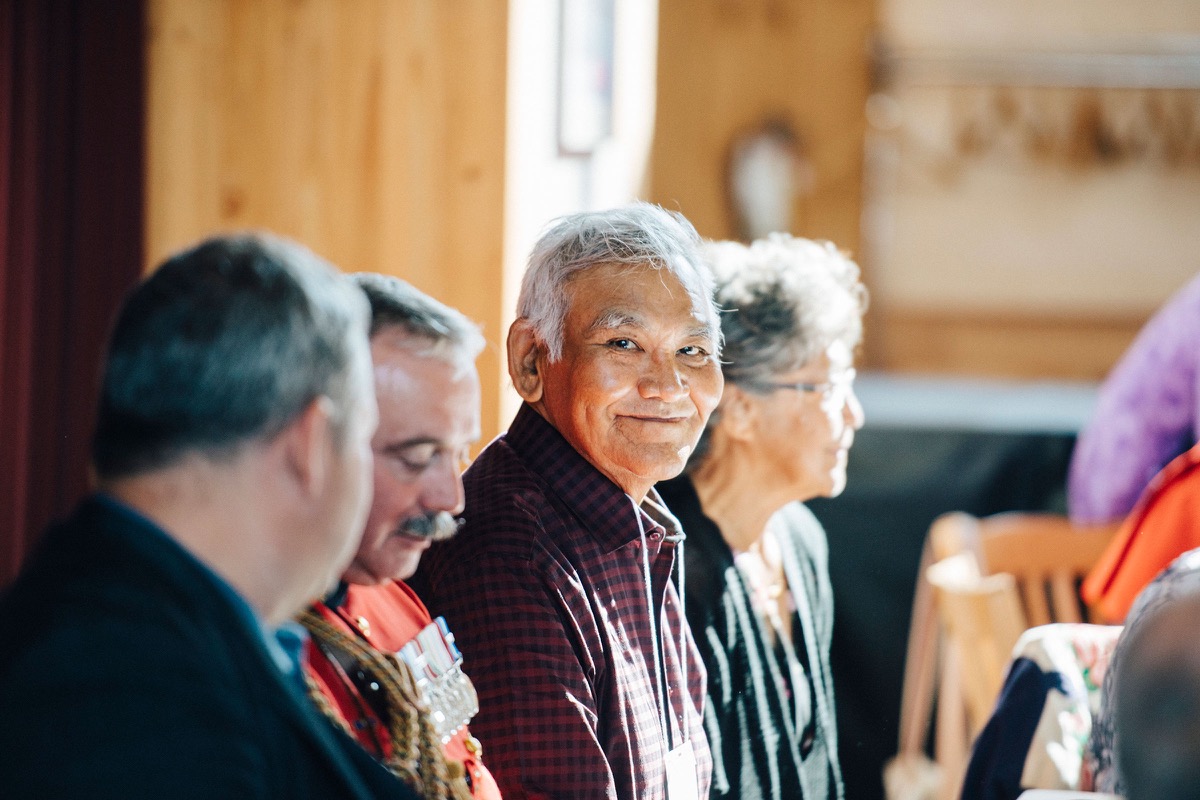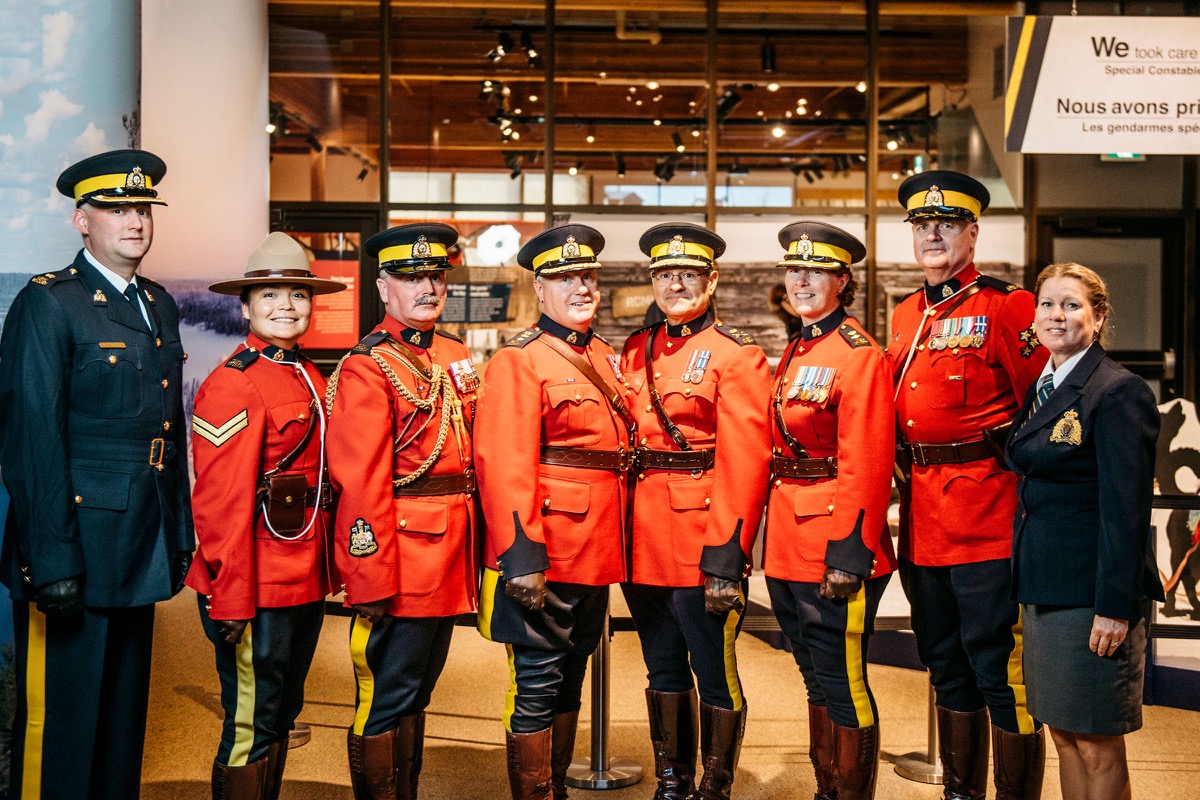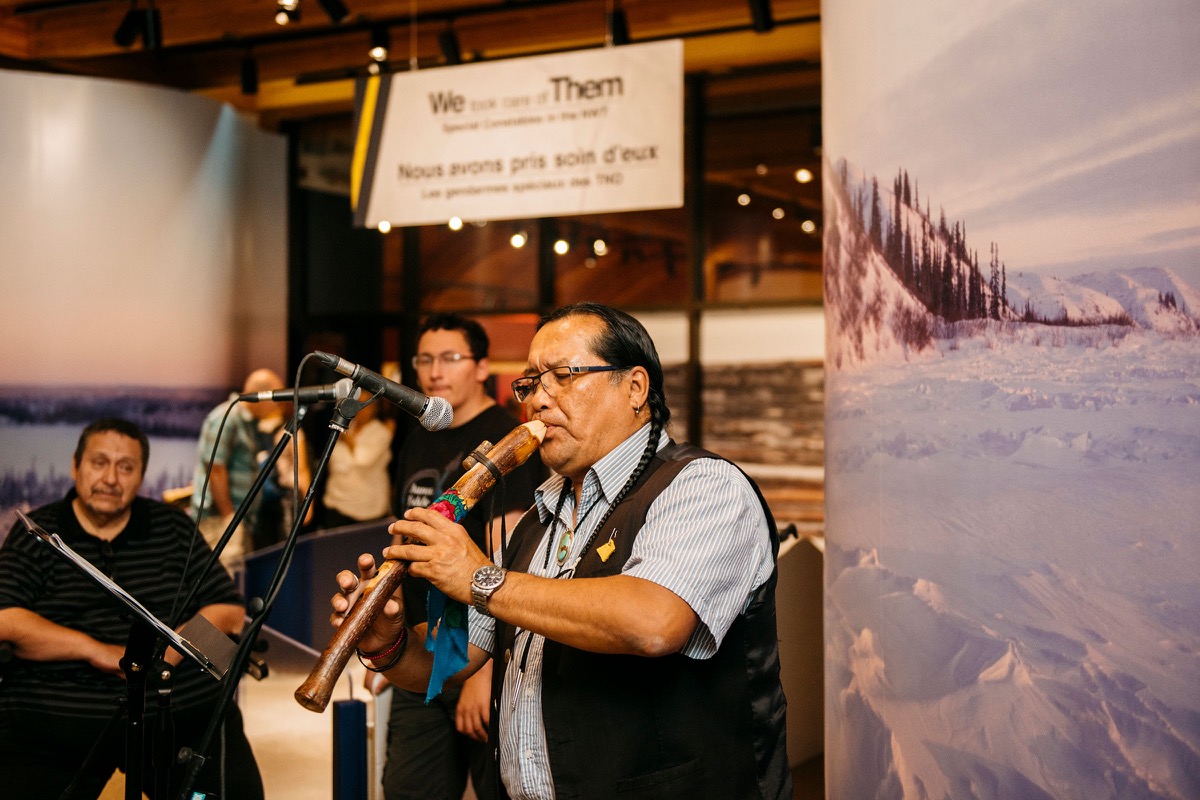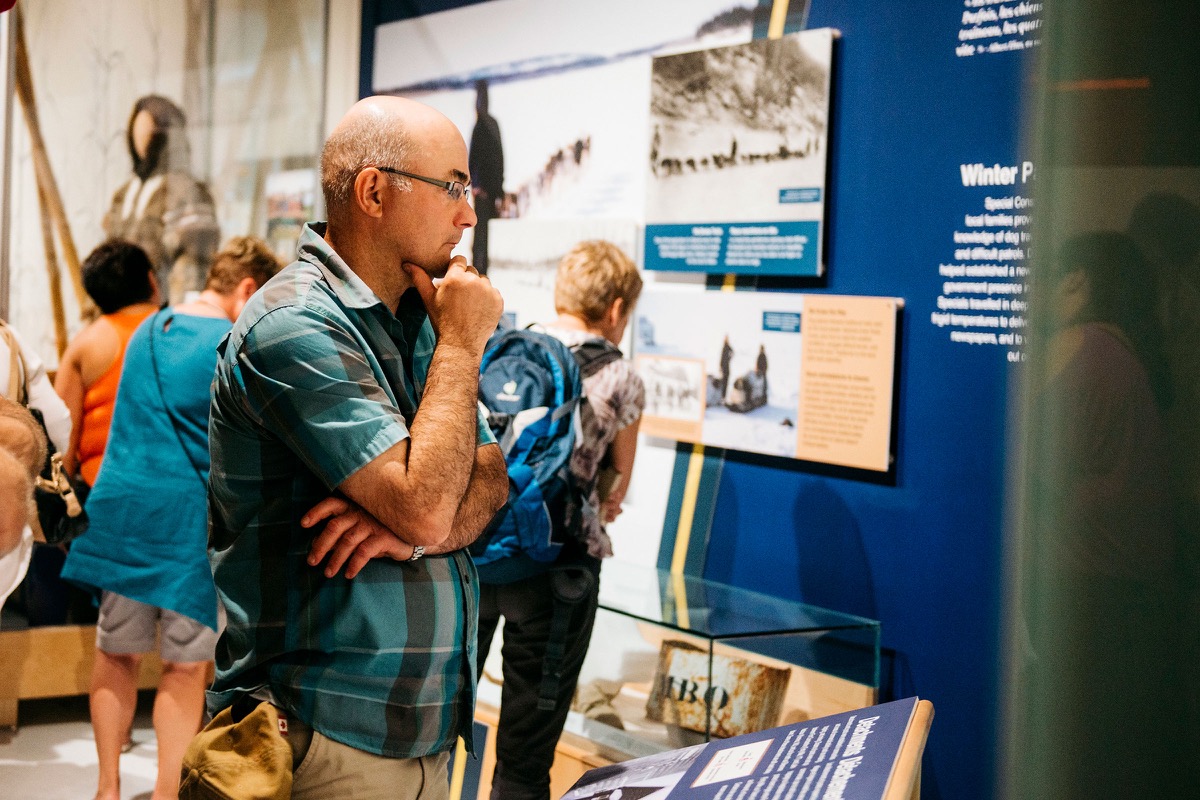Transition of Special Constables
As the need for the skills and services they supplied in relation to dog teams and dog sled transportation lessened, the role of the Special Constable changed.
From the 1970s through the 1990s Special Constables were encouraged to transition to become Regular Members of the RCMP.
The important skills provided by the Special Constables from the 1800s to the late 1900s are the basis for Aboriginal Policing Services in today’s RCMP. Building upon the strong historical relationship between Indigenous and non-Indigenous employees, the RCMP is committed to the highest quality of service in Canada and the Northwest Territories.
Gerry Kisoun remembers spending time with S/Cst. Otto Binder. He recalls Otto advising, “Why don’t you join the RCMP and work with us?” Gerry took that advice to heart and joined the RCMP as a Special Constable in 1971. He graduated as an RCMP Constable in 1975, and went on to serve in Alberta and the Yukon.
As a proud Inuvialuk, Gerry longed to return to the north. He served the people of his communities in Tuktoyaktuk and Inuvik from 1986 to 1996 as an RCMP Officer.
Since then, Gerry has continued to serve the people of his communities and the Northwest Territories, including serving as Deputy Commissioner for the Northwest Territories in 2016/2017.
Inuvik Sub/Div. Insp. John Sebastien congratulates S/Cst. Gerry Kisoun on receiving his Regimental number, allowing him to attend the RCMP Training Academy, 1974.
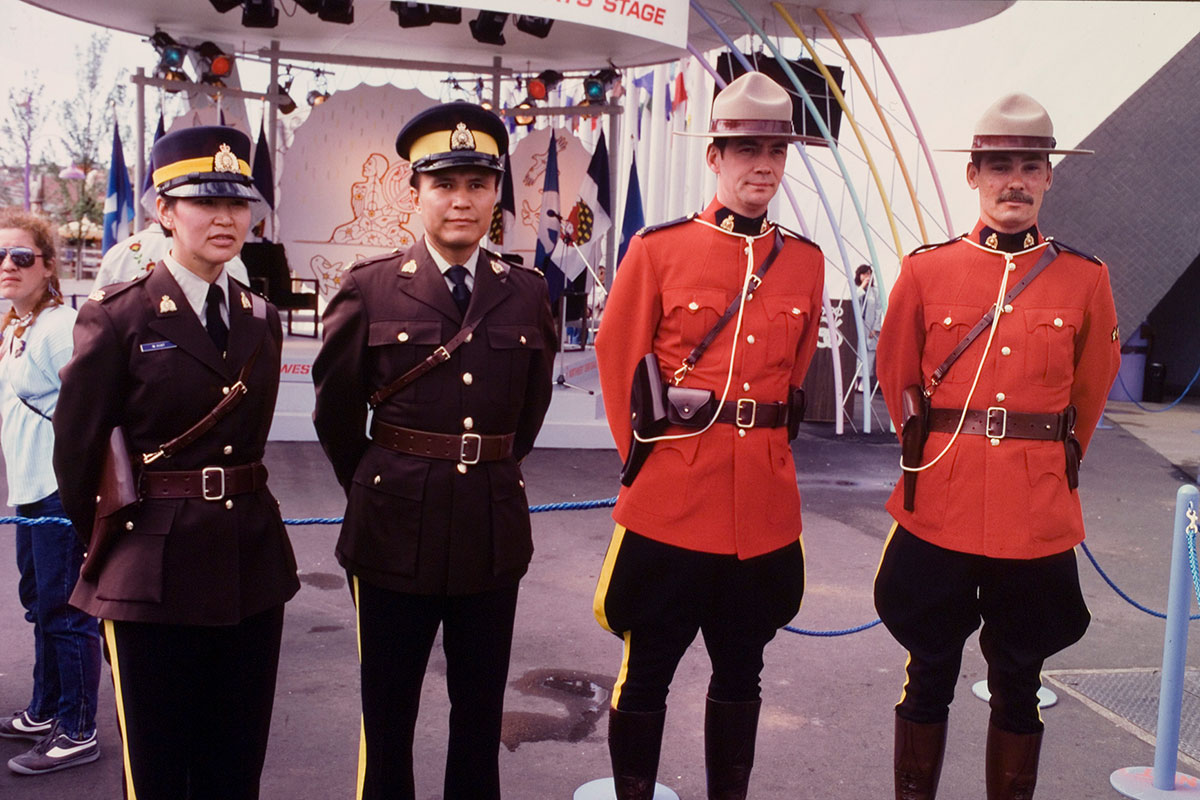
NWT RCMP special constables in Vancouver at Expo ’86
NWT Archives/G-1995-001:4743
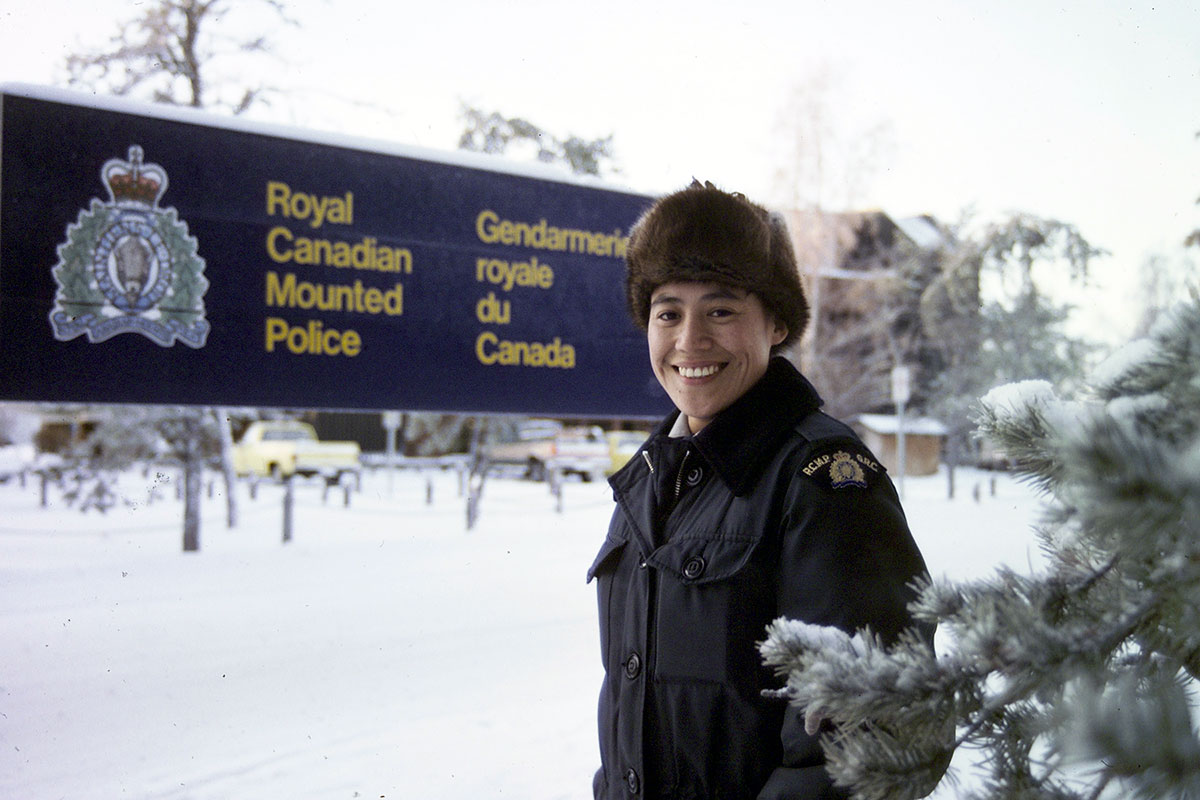
RCMP Officer Julia Crapeau of Detah at the “G” Division Headquarters in Yellowknife, 1989.
NWT Archives/G-1995-001:2877
Corporal April Bell is an example of modern day RCMP. Raised in the Northwest Territories, she desired to serve northern people as an RCMP officer. As head of Aboriginal Policing for “G” Division, she enjoys working with NWT communities to enhance policing services.
Right: Cpl. April Bell in full Red Serge, 2017.
Background: 1973 RCMP Commemorative Plaque outside “G” Division Headquarters in Yellowknife.
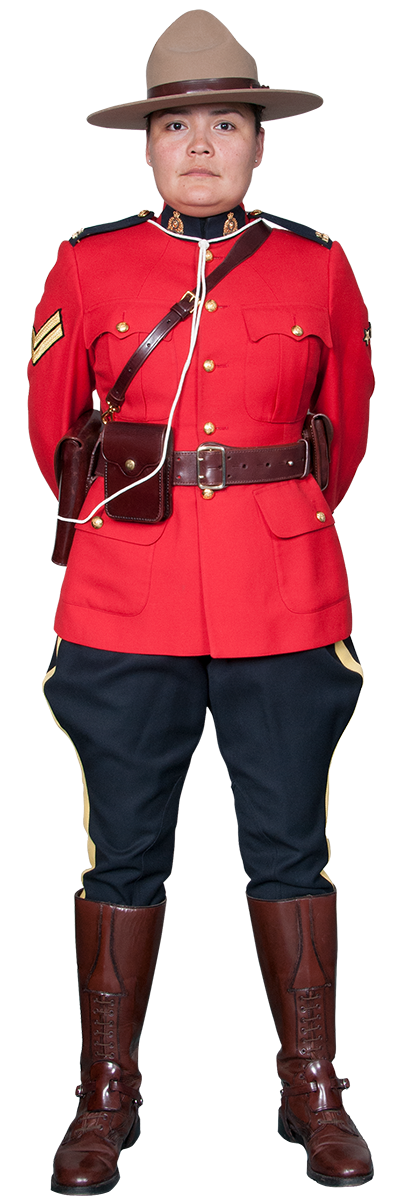
Reconciliation
Reconciliation is an ongoing individual and collective process. It involves participation from former residential school students, others affected by Indian Residential Schools, religious entities, governments, and the people of Canada.
Recognition for Indigenous contributions to police work is an act of Reconciliation.
Background: Exhibit Opening, August 3, 2017. (Angela Gzowski Photography)
Exhibit Opening
Acknowledgements
The exhibit “We Took Care of Them” opened at the Prince of Wales Northern Heritage Centre in Yellowknife NWT, August 3, 2017. It was created in partnership between the Government of the Northwest Territories departments of Education, Culture and Employment, and Justice, along with Royal Canadian Mounted Police “G” Division.
We wish to thank all of those individuals that shared their stories with us for this exhibit:
Bella Arey, Inuvik
Sonny (Edward) Balsillie, Fort Resolution
Steve Beck, Hay River
Otto Binder Jr., Inuvik
Grace Blake, Tsiigehtchic
Mabel Brown, Inuvik
Dale Clark, Tsiigehtchic
Albert Elias, Inuvik
Freddy Jerome, Inuvik
Thomas Kotchea, Trout Lake
Wilfred Lennie, Tulita
George Mandeville, Fort Smith
Arlene Wright, Fort Liard
Charlotte Menacho, Tulita
Louie Mercredi, Fort Smith
Winston Moses, Inuvik
George Niditchie, Tsiigehtchic
Louise Reindeer, Tulita
Peter Ross, Tsiigehtchic
We also acknowledge the contributions of:
RCMP Heritage Centre
Deborah Kigjugalik Webster, Ottawa
Paul Andrew, Yellowknife
Lee Cazon, Fort Simpson
April Bell, Yellowknife
Gerry Kisoun, Inuvik
RCMP Quarterly
Gwich’in Tribal Council staff:
Alestine Andre, Ingrid Kritsch, Diane Baxter
CBC NWT
GNWT Aboriginal Languages and Learning Secretariat
Wally Wolfe, St. Albert
Sue Look, Hay River
Wallace Finlayson, Trophy Lodge, Reliance
Leslie McCartney
Kevin Antoniak, Fort Smith
Barb Cameron, Yellowknife
